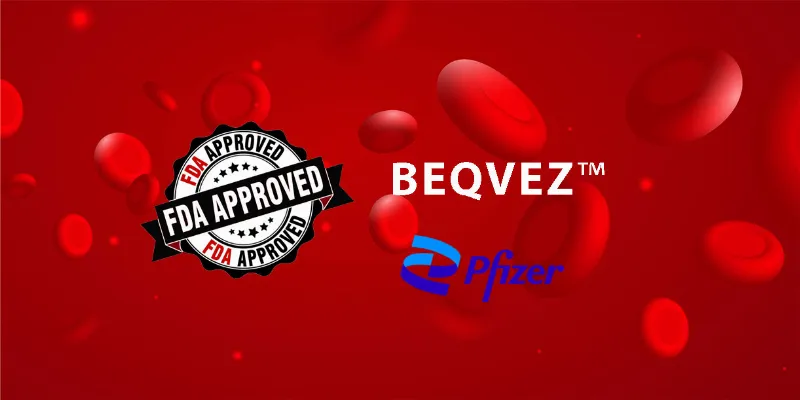Transformative One-Time Gene Therapy: FDA Approves Pfizer's BEQVEZ, for Hemophilia B

26 April 2024
Pfizer announced that the US Food and Drug Administration (FDA) has approved BEQVEZ™ (fidanacogene elaparvovec-dzkt), a one-time gene therapy for adults with moderate to severe hemophilia B. The approval marks a significant shift in the treatment of this genetic disorder, enabling patients to produce their own clotting factor IX. Demonstrating promising results in reducing bleeding episodes, BEQVEZ is signaling a potential global impact on hemophilia care.
BEQVEZ offers a promising alternative by enabling patients to produce their own FIX through a one-time gene therapy. According to Pfizer, a median of zero bleeds was observed in treated patients over up to three years of follow-up, indicating sustained efficacy compared to current prophylaxis regimens.
“Many people with hemophilia B struggle with the commitment and lifestyle disruption of regular FIX infusions, as well as spontaneous bleeding episodes, which can lead to painful joint damage and mobility issues. A one-time treatment with BEQVEZ, has the potential to be transformative for appropriate patients by reducing both the medical and treatment burden over the long term,” said Dr. Adam Cuker, Director, Penn Comprehensive and Hemophilia Thrombosis Program.
Hemophilia B, is a rare genetic condition characterized by a deficiency in clotting factor IX (FIX), which leads to prolonged and frequent bleeding episodes. Traditionally managed through regular and often frequent intravenous infusions of FIX, the standard treatment not only disrupts daily life but also places a substantial strain on healthcare resources.
BEQVEZ, utilizes an adeno-associated virus vector (AAV) to deliver a functional copy of the FIX gene directly into the patient's cells, thus allowing them to produce the clotting factor independently. This innovative approach not only promises to reduce the frequency of bleeding episodes but also to lessen the overall management burden for patients.
""For people living with hemophilia, disease management can interfere with many aspects of their lives," said Kim Phelan, Chief Operating Officer of the Coalition for Hemophilia B. "We are excited to have BEQVEZ as a promising treatment option for eligible people living with hemophilia B."
A Global Perspective on Hemophilia Care
With over 38,000 people worldwide living with hemophilia B, the approval of Beqvez could represent a significant advancement in hemophilia care. The therapy is also under review by the European Medicines Agency (EMA) and has recently been approved in Canada, indicating a growing international interest.
“We are leveraging our expertise that comes with more than 40 years of experience in the hemophilia space, and are proactively working with treatment centers, payers, and the hemophilia community to appropriately help ensure the healthcare system is prepared to readily deliver BEQVEZ to the patients who can benefit from it,” said Aamir Malik, Chief US Commercial Officer and EVP, Pfizer.
Pfizer's commitment to hemophilia treatment extends beyond BEQVEZ, the company is actively developing other gene therapies for hemophilia A and Duchenne muscular dystrophy.
Long-Term Commitment to Safety and Efficacy
The approval of BEQVEZ, was based on the pivotal BENEGENE-2 study, which demonstrated a significant reduction in annualized bleeding rates compared to the traditional prophylaxis regimens. Pfizer has committed to a 15-year follow-up in their clinical program to monitor the long-term safety and efficacy of the treatment.
About BENEGENE-2 Study
The BENEGENE-2 study, a Phase 3 trial, evaluated the safety and efficacy of BEQVEZ compared to standard FIX prophylaxis. The study enrolled 45 adult males with severe hemophilia B, who received a one-time infusion of BEQVEZ. Results showed a significant reduction in the annualized bleeding rate (ABR), with 60% of BEQVEZ recipients experiencing no bleeds compared to 29% on prophylaxis. The treatment was well-tolerated, with increased transaminases as the most common side effect. Participants will be monitored for up to 15 years to assess long-term safety and efficacy.











Comments
No Comments Yet!